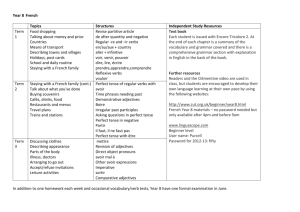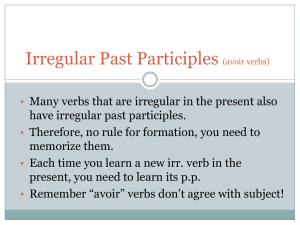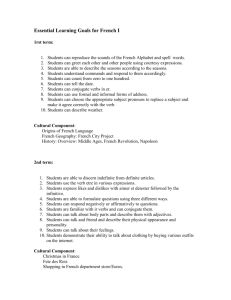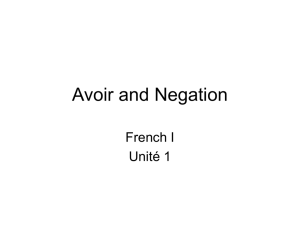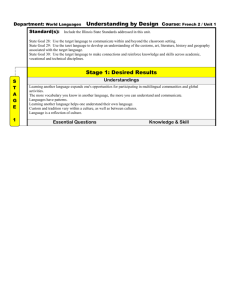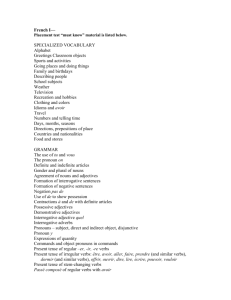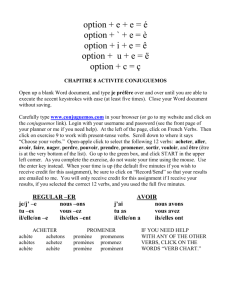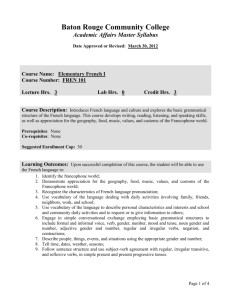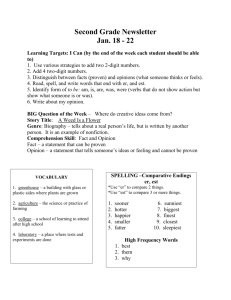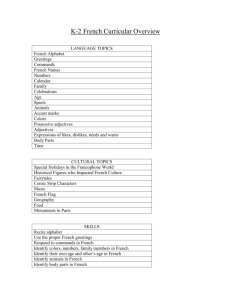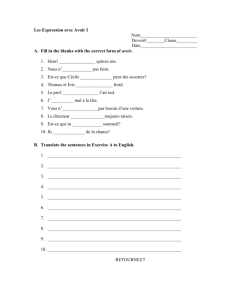French 2 Challenge Guidelines
advertisement
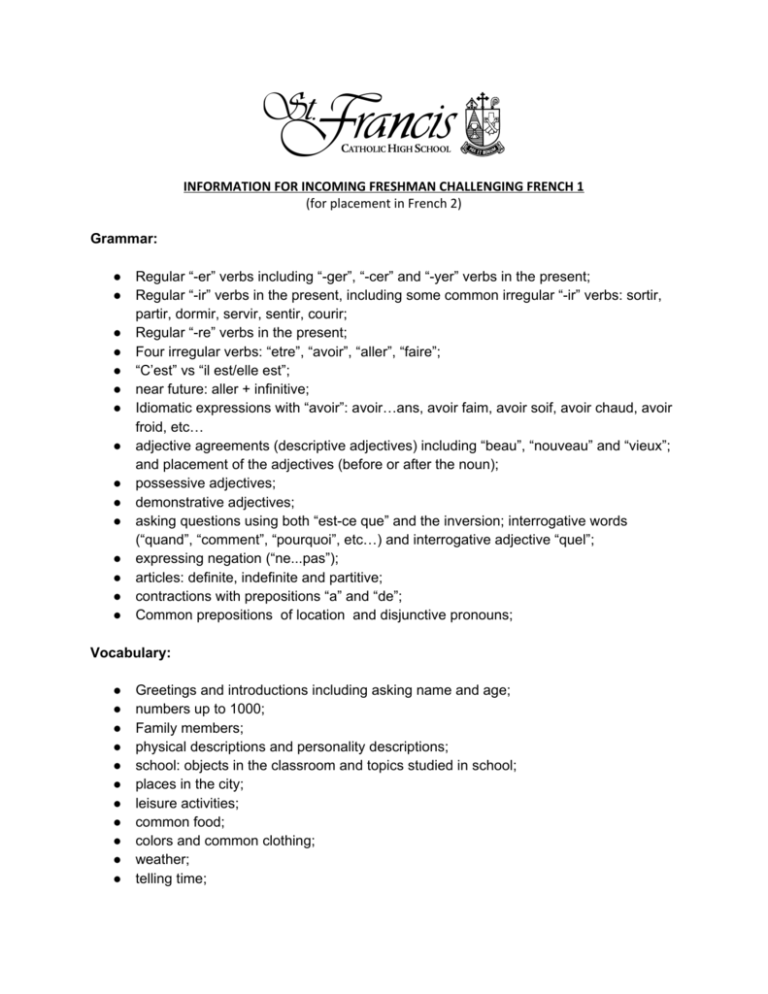
INFORMATION FOR INCOMING FRESHMAN CHALLENGING FRENCH 1 (for placement in French 2) Grammar: ● Regular “­er” verbs including “­ger”, “­cer” and “­yer” verbs in the present; ● Regular “­ir” verbs in the present, including some common irregular “­ir” verbs: sortir, partir, dormir, servir, sentir, courir; ● Regular “­re” verbs in the present; ● Four irregular verbs: “etre”, “avoir”, “aller”, “faire”; ● “C’est” vs “il est/elle est”; ● near future: aller + infinitive; ● Idiomatic expressions with “avoir”: avoir…ans, avoir faim, avoir soif, avoir chaud, avoir froid, etc… ● adjective agreements (descriptive adjectives) including “beau”, “nouveau” and “vieux”; and placement of the adjectives (before or after the noun); ● possessive adjectives; ● demonstrative adjectives; ● asking questions using both “est­ce que” and the inversion; interrogative words (“quand”, “comment”, “pourquoi”, etc…) and interrogative adjective “quel”; ● expressing negation (“ne...pas”); ● articles: definite, indefinite and partitive; ● contractions with prepositions “a” and “de”; ● Common prepositions of location and disjunctive pronouns; Vocabulary: ● Greetings and introductions including asking name and age; ● numbers up to 1000; ● Family members; ● physical descriptions and personality descriptions; ● school: objects in the classroom and topics studied in school; ● places in the city; ● leisure activities; ● common food; ● colors and common clothing; ● weather; ● telling time; ● telling date: days, months, calendar Culture: ● Proper greetings: formal vs. informal; vous vs. tu ● Comparing school system in France vs. United States ● Eating customs in France vs. United States ● Introduction to the concept of “Francophonie” and the many facets of Francophone lifestyles. Students need to be able to write simple sentences in French in a paragraph format in the present. They also need to be able to have a simple conversation in French about themselves (e.g., school, family, extracurricular activities, what they like and don’t like).
